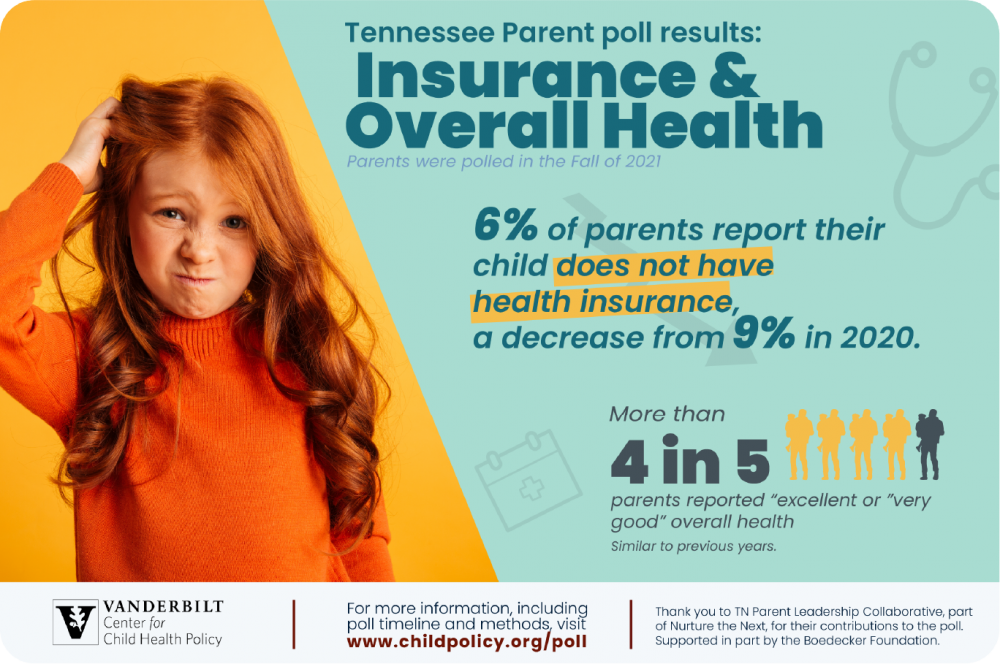The most recent analysis of the Vanderbilt Child Health Poll by researchers in the Vanderbilt Center for Child Health Policy shows that insurance coverage for Tennessee children is beginning to rebound after a sharp increase in the rate of uninsured children in 2020.
The spike in uninsured children in 2020 was largely explained by sharp decreases in private insurance coverage driven by the COVID-19 pandemic. In April 2020 when the pandemic caused sudden and large job losses, Tennessee’s unemployment rate spiked to 16% from just 4% the month before, according to the Bureau of Labor and Statistics.
“This sudden change in employment had a substantial effect on Tennessee families, and many families faced challenges with finding a new source of health insurance for their children,” said Joe Zickafoose, MD, MS, assistant professor of Clinical Pediatrics at the Monroe Carell Jr. Children’s Hospital at Vanderbilt and member in the Center.
During the period from 2019 to 2020, the rate of children with public health insurance from TennCare and CoverKids grew from 43% to 46%. In 2021, the rate of publicly insured children was remained mostly stable at 44%.
Scroll down to continue reading...
Continued...
“TennCare and CoverKids were crucial safety nets for thousands of Tennessee families during the pandemic,” said Zickafoose. “During this time, families have not had to jump through the regular hoops to redetermine their eligibility, but that will change when the official public health emergency ends. It is vital that families keep their information up to date with TennCare and CoverKids, and that TennCare and health care clinicians do everything they can to make sure that kids who are still eligible keep their health insurance.”
The poll also asks parents to assess their children’s overall wellbeing each year. As the COVID-19 pandemic hit the state of Tennessee, fewer parents reported their children were in excellent or very good health, decreasing from 87% in 2019 before the pandemic to 84% in 2020 and 2021. Although the difference seems small, this measure of child health typically doesn’t change much year to year, researchers said.
“Our poll results this year demonstrate Tennessee children are facing challenges on many fronts. We found increasing rates of anxiety, disruptions in schooling, and high rates of food insecurity,” said Stephen Patrick, MD, MPH, associate professor of Pediatrics and Health Policy and director of the Center. “The downward trend will need to be watched closely and we need to continue to find ways to invest in our children to make Tennessee a great place to be a kid.”
About Poll
The Vanderbilt Child Health Poll is conducted annually by the Vanderbilt Center for Child Health Policy. It is funded in part by a grant from the Boedecker Foundation.






